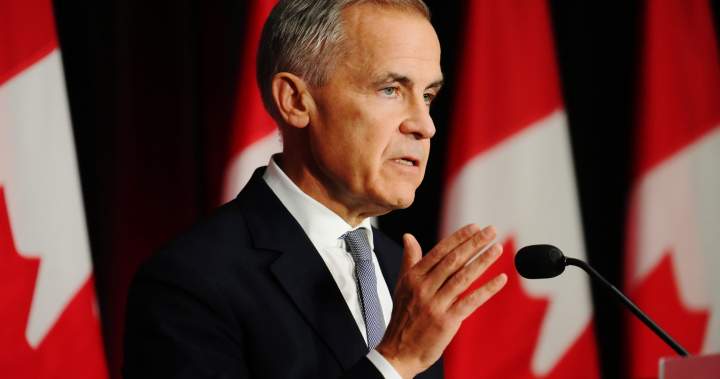Prime Minister Mark Carney vowed Wednesday to double non-U.S. exports over the next decade while boosting domestic investment and infrastructure in the upcoming budget — and telling Canadians “sacrifices” will be needed.

Speaking in a primetime address to students at the University of Ottawa, Carney said the expansion of international trade beyond the U.S. will generate $300 billion more in trade, which will bolster the economy in the face of U.S. President Donald Trump’s tariffs.
“The decades-long process of an ever-closer economic relationship with the United States is over,” Carney said. “As a consequence, many of our former strengths as a country … based on close ties to America have become our vulnerabilities.
“To be clear, we won’t transform our economy easily or in a few months,” he said later. “It will take some sacrifices and it will take some time.”
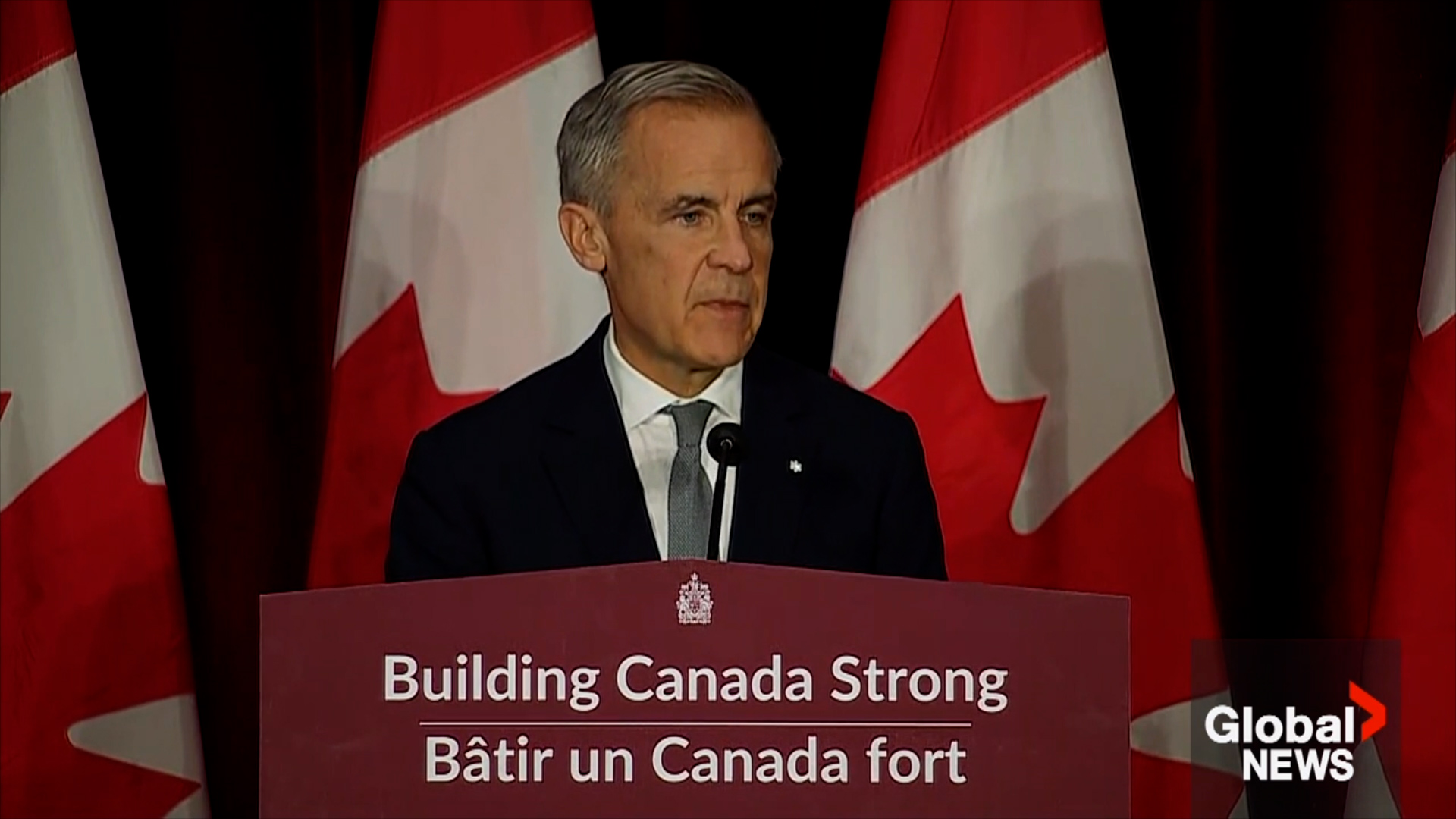
0:51
Canada aims to ‘double non-U.S. exports’ over next decade, Carney says in pre-budget speech
The prime minister also promised the next slate of so-called “nation-building” major projects to be fast-tracked under new federal legislation will be announced by the Grey Cup next month.
He said “it’s time to swing for the fences again” with such “generational” investments, which will be necessary to build the economy of the future.
Carney’s speech came as a new report from Desjardins estimates the federal budget deficit could be the highest in 30 years, outside of the Great Recession and Covid-19 pandemic years.
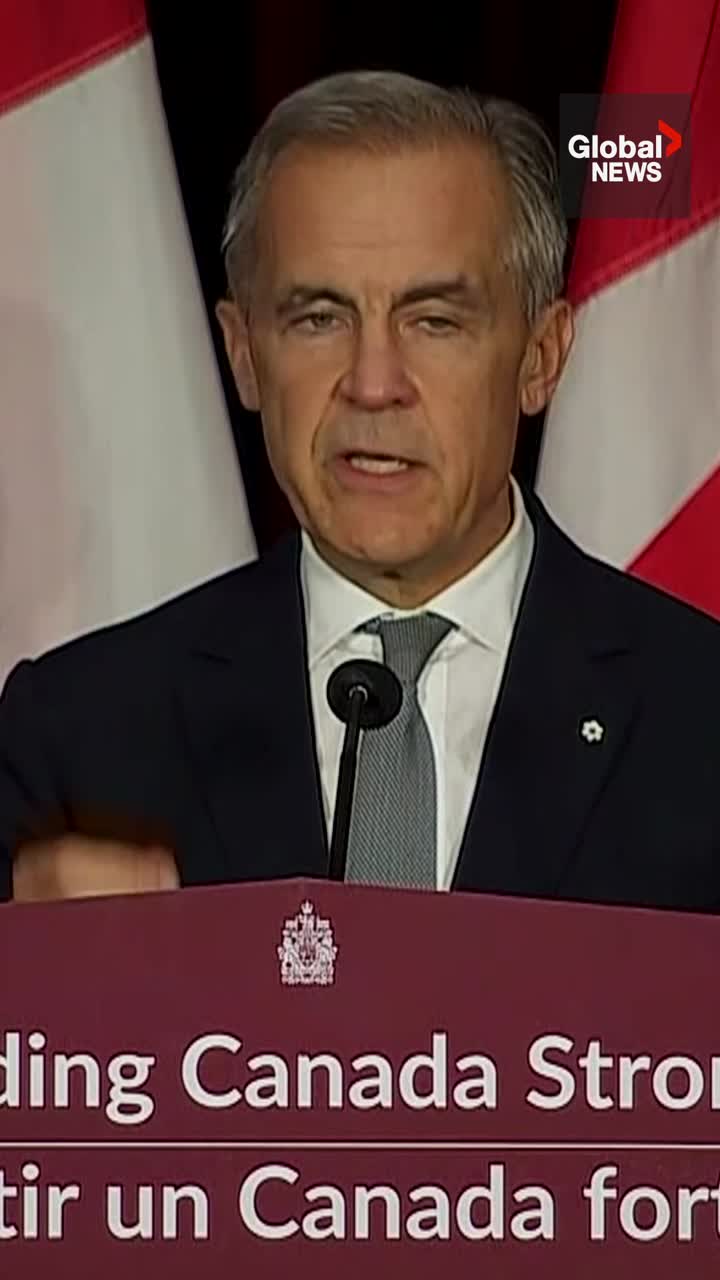
0:37
‘Swing for the fences’: Carney references Blue Jays George Springer home run in pre-budget speech
The federal government is expected to deliver its budget on Nov. 4, which will include details on Canada’s defence and infrastructure spending commitments, as well as a clearer picture of how high the deficit could climb.
Carney acknowledged the federal government of the past 10 years has been spending more than the economy has been growing, and said the budget will outline strategies to reduce operational spending and streamline government services.

Get the day’s top news, political, economic, and current affairs headlines, delivered to your inbox once a day.
“Even with such efficiencies and better management, we will have to do less of some of the things we want to do, so we can do more of what we must do to build a bigger, better Canada,” he said.
Despite that, he said recent federal programs like dental care and child care will be protected, and that the national school food program will be made permanent.
Carney highlighted previous announcements of budget highlights including automatic tax filing for low-income Canadians and investments in border security.
He also said it will include a new immigration strategy to help ensure levels of new arrivals matches Canada’s capacity, as the government works to increase housing construction with the new Build Canada Homes agency.
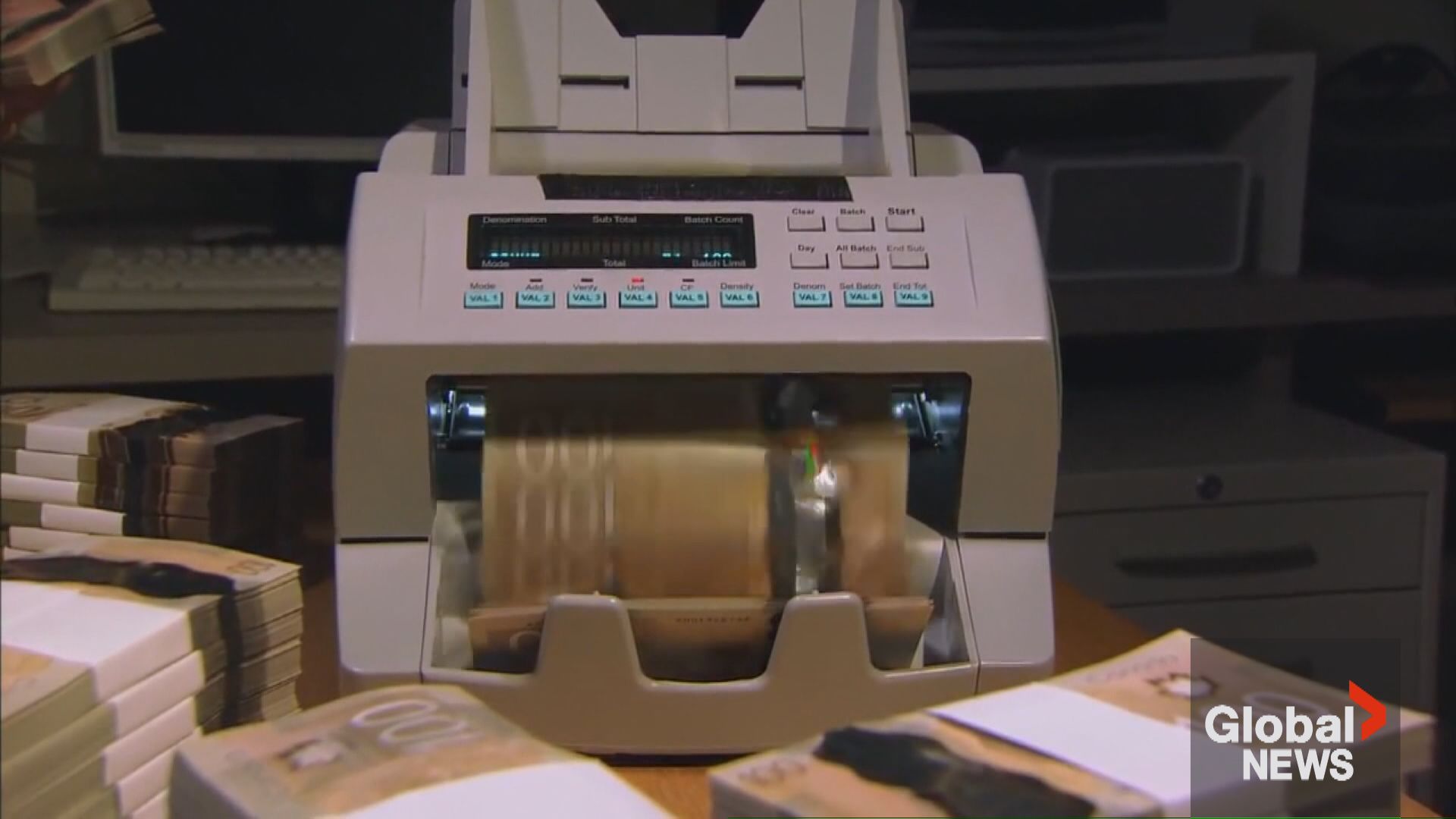
1:45
Tax cuts, dropping U.S. tariffs will hurt Canada’s fiscal position: Desjardins
“Our economy is holding up” despite those and other pressures, Carney said.
“But if we don’t act now, the pressures will only grow.”
The upcoming budget will include new apprenticeship and skills-training programs and a new “talent strategy for the next generation of scientists and innovators” in Canada, Carney added, in one of many comments directed directly to his younger audience.
He said the “rupture” brought by Trump’s trade protectionist policies and growing global divisions means Canada’s economic strategy “needs to change dramatically, and that your future will not be the same as my past.”
“It’s our country. It’s your future. We’re going to give it back to you,” he said.
“We will play to win. We will be on Canada and all Canadians.”
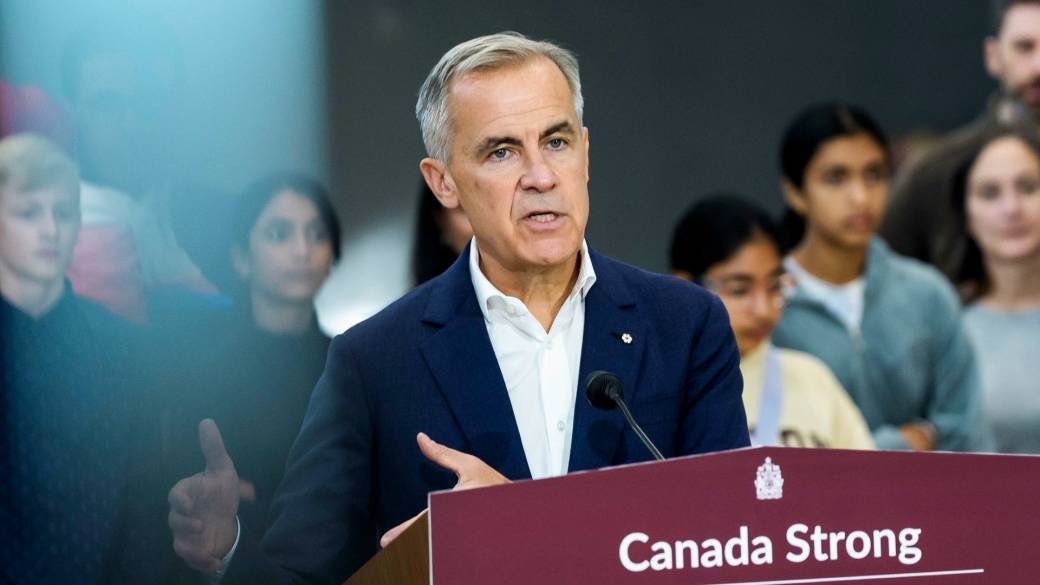
2:04
Carney’s federal budget aims to help low-income Canadians
Trending Now
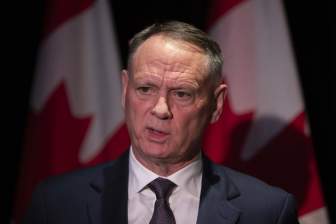
Minister won’t say why Ottawa cancelled Ukraine armoured vehicle contract

Alberta mother wants police to do more as son remains missing: ‘He’s out there’
Desjardins on the budget deficit
Carney’s speech comes amid growing warnings that Canada will see a significant deficit.
Ottawa’s fiscal watchdog estimated last month that the annual deficit could climb to $68.5 billion this year.
Conservative Leader Pierre Poilievre met with Carney earlier Wednesday to urge him to lower the deficit and cut taxes in order to improve affordability.
Desjardins in a new report on Wednesday estimated the federal budget could climb past $70 billion this year, depending on what additional details are revealed.
Desjardins says the federal deficit could be the largest in 30 years, outside of recession and pandemic years.
The firm cites data measuring the expected ratio of budget deficits as a percentage of Gross Domestic Product, which means how the government’s debt compares to the amount the economy produces.

6:45
National deficit could reach 30-year high
In its federal budget preview, Desjardins says the rising government deficit will be the result of an increase in spending and a decline in revenues.
Although the budget has yet to be released, Desjardins says Canada’s goal to increase spending on defence will “take centre stage,” combined with a drop in revenues after removing most counter-tariffs on the U.S. and tax cuts to individuals just before the summer.
“These spending increases wouldn’t have as substantial an impact on the deficit if it weren’t for the accompanying reduction in tax and tariff revenues. By our estimate, the budget shortfall in the current fiscal year could exceed $70 billion —almost double that projected in the Fall Economic Statement 2024.”
“Defence should take centre stage in Budget 2025, but there is likely to be plenty of other planned spending between its covers.”
The Desjardins report goes on to describe additional spending plans that “are likely to have big price tags attached,” including on infrastructure, housing, and tariff impacted industries and workers.
More on Money
More videos
© 2025 Global News, a division of Corus Entertainment Inc.
